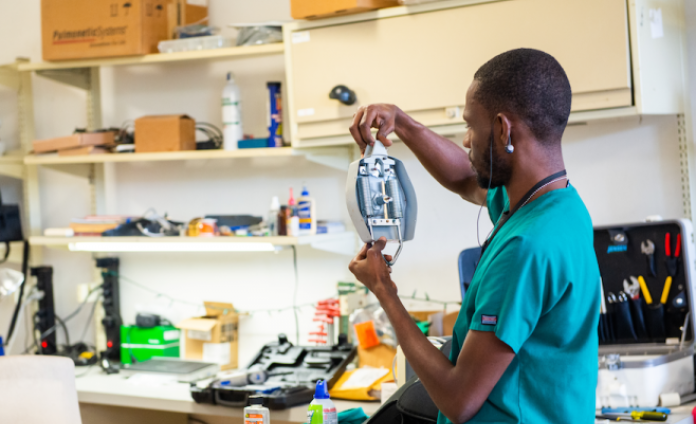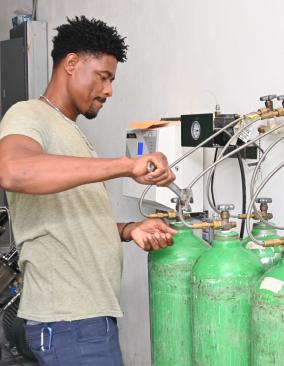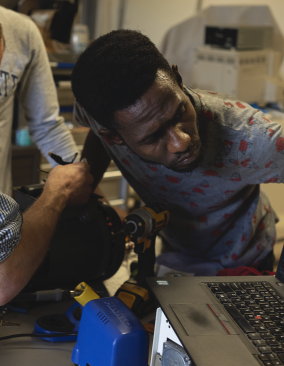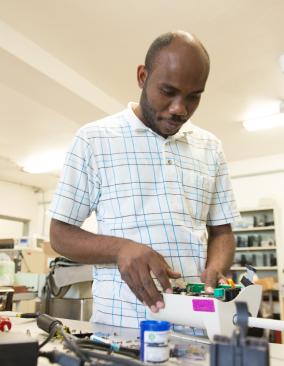Nearly 80% of medical equipment in low-income countries is donated, and needs regular maintenance and repair. Unfortunately, most hospitals do not have biomedical technicians who can fix broken equipment. A lack of functioning medical equipment limits the ability of doctors and nurses to care for their patients.
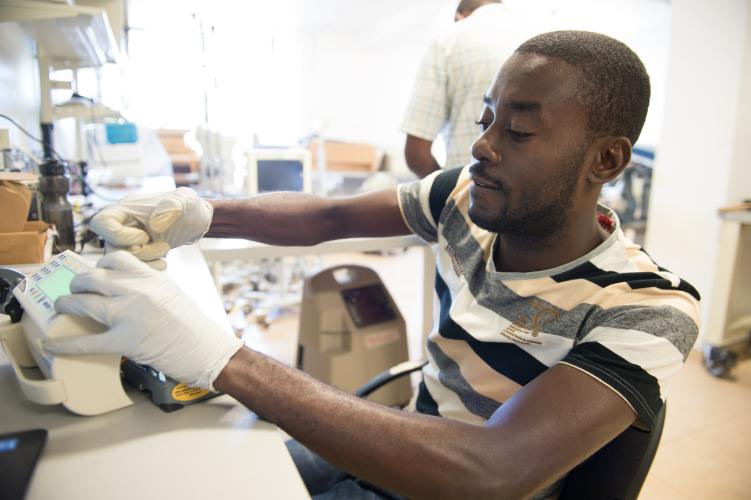
Our BMETs help keep SBH running smoothly.
In 2016, HEI/SBH took a huge step forward in solving the problem of broken and malfunctioning medical equipment in Haiti by starting a biomedical engineering technician training program known as the Reparation Pou Amelyore Ekipman Medikal (REPARE) Program. In Haitian Kreyòl, “repare” means “repair”.
The REPARE Program was launched with the support of the US Agency for International Development (USAID) in partnership with the GE Foundation and the WK Kellogg Foundation. It trained Haitians to repair and maintain biomedical equipment and support their clinician colleagues. That professional training opened up opportunities for greater job security and economic stability for participants.
Alix Ilophene, a REPARE trainee, now serves as SBH’s Chief Biomedical Engineering Officer. He trains other biomedical equipment technicians (BMETs) and supports staff and clinicians in healthcare facilities throughout Haiti with equipment repair and maintenance needs.
HEI’s Biomedical Equipment Consultant, Tom Monaghan, oversees our continuing biomedical engineering program. Along with other international experts, Tom has conducted virtual trainings for Haitian BMETs and continues to advise on more complex and specialized repairs.
With support from the WK Kellogg Foundation, we are now strengthening the biomedical equipment capacity of seven other health facilities in southern Haiti by helping to source equipment, providing repair and maintenance services, and offering training to existing BMETs and clinical staff members.
